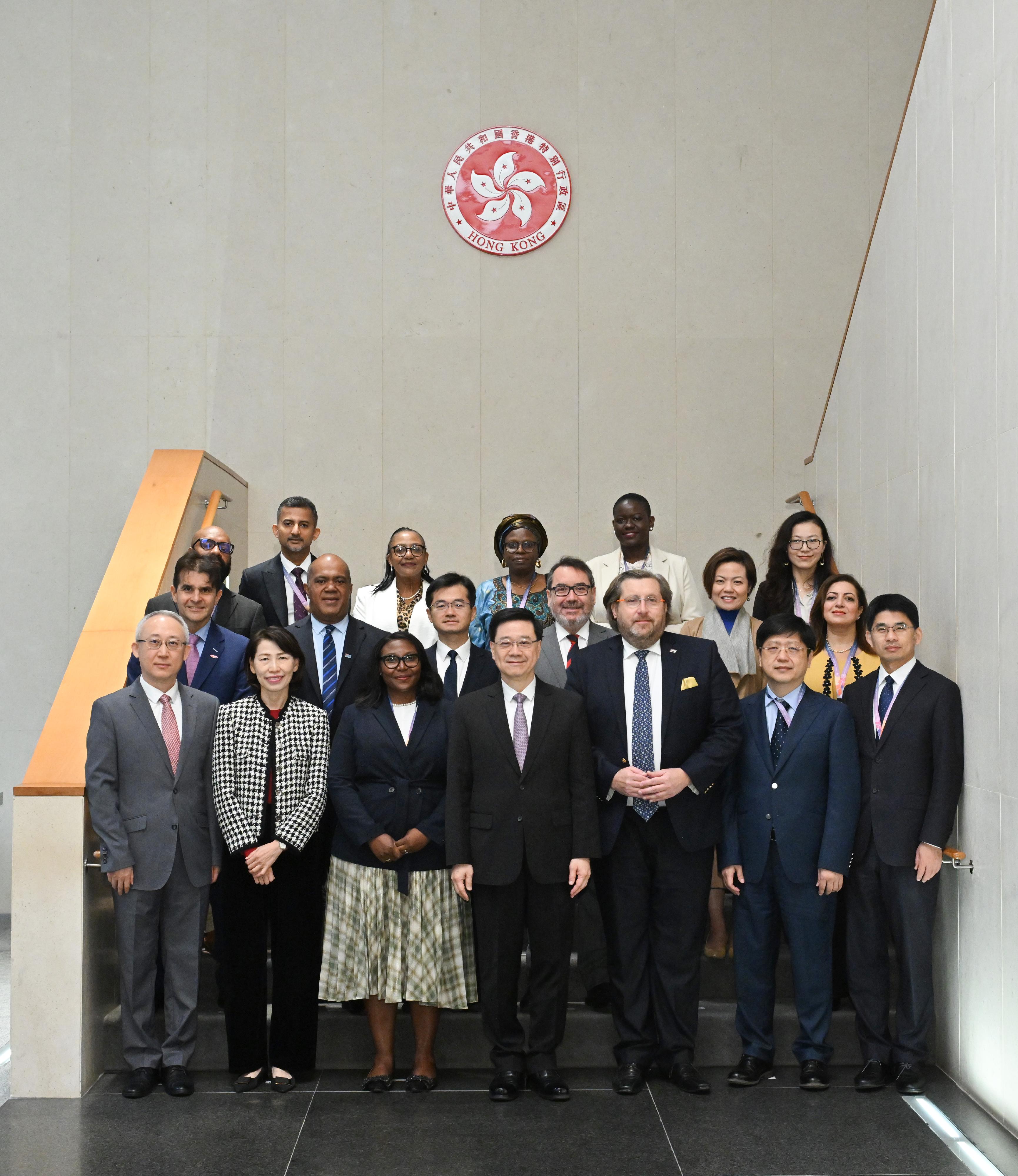Business receipts in value terms of many major service industries showed increases of varying magnitudes in the third quarter of 2024 when compared with the third quarter of 2023, according to the provisional figures of business receipts indices released today (December 9) by the Census and Statistics Department (C&SD).
Comparing the third quarter of 2024 with the third quarter of 2023, double-digit increases were recorded in business receipts indices of the transportation (+17.3%), financing (except banking) (+13.7%) and insurance (+11.7%) industries. On the other hand, the accommodation services industry recorded a decrease of 10.2% in business receipts index during the same period.
Analysed by service domain, business receipts index of the computer and information technology services domain increased by 34.4% year-on-year during the same period, whereas that of the tourism, convention and exhibition services domain decreased by 5.3% year-on-year.
On a seasonally adjusted quarter-to-quarter comparison, business receipts in value terms of around half of the major service industries recorded decreases of varying magnitudes in the third quarter of 2024 when compared with the second quarter of 2024. In particular, a double-digit decrease was recorded in business receipts index of the real estate (-10.6%) industry. On the other hand, business receipts index of the insurance industry increased by 7.0% during the same period.
Analysed by service domain, comparing the third quarter of 2024 with the second quarter of 2024 on a seasonally adjusted basis, business receipts index of the computer and information technology services domain increased by 13.4%, while that of the tourism, convention and exhibition services domain also increased by 11.5%.
Commentary
A Government spokesman said that business receipts of many service industries continued to increase in the third quarter of 2024 over a year earlier. In particular, business receipts of the transportation, financing (except banking), and insurance industries recorded double-digit increases.
Looking ahead, business of the service industries as a whole should continue to expand. The Mainland’s various measures to boost the economy, together with the initiatives in the 2024 Policy Address that inject new impetus to the Hong Kong economy, will benefit various service industries, though some of them may be more affected by increased global economic uncertainties and escalation of trade conflicts.
Further information
Table 1 presents the business receipts indices and their corresponding year-on-year rates of change in respect of selected service industries and service domains for the recent five quarters, while Table 2 shows the corresponding quarter-to-quarter rates of change in the business receipts indices for the recent five quarters based on the seasonally adjusted series.
The revised figures of business receipts indices for the third quarter of 2024 will be released at the website of the C&SD (www.censtatd.gov.hk/en/web_table.html?id=660-69001) on January 20, 2025.
Data for compiling the business receipts indices are mainly based on the Quarterly Survey of Service Industries conducted by the C&SD, supplemented by relevant data provided by the Hong Kong Monetary Authority and the Hong Kong Tourism Board.
A service domain differs from a service industry in that it comprises those economic activities which straddle different industries but are somehow related to a common theme. It may include all activities carried out by all establishments in a service industry that is closely related to the domain. For a service industry that is less closely related, however, only a portion of the establishments in the industry or even only part of the economic activities of the establishments is related to the domain. Taking the tourism, convention and exhibition services domain as an example, it includes all services of convention and exhibition organisers, short-term accommodation services and services of travel agents, and some of the services (only those involving visitors as customers) of restaurants, retailers and transport operators.
The classification of service industries follows the Hong Kong Standard Industrial Classification Version 2.0, which is used in various economic surveys for classifying economic units into relevant industry classes.
More detailed statistics are given in the report “Quarterly Business Receipts Indices for Service Industries, Third Quarter 2024”. Users can browse and download this publication at the website of the C&SD (www.censtatd.gov.hk/en/EIndexbySubject.html?pcode=B1080006&scode=520).
For enquiries about the business receipts indices, please contact the Business Services Statistics Section of the C&SD (Tel: 3903 7274 or email: business-receipts@censtatd.gov.hk). read more


